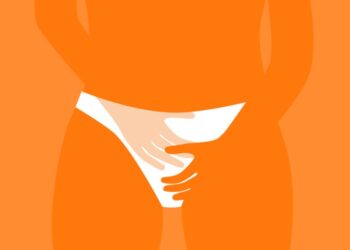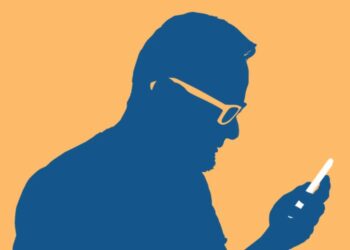Erectile dysfunction (ED), commonly known as impotence, refers to the consistent inability to achieve or maintain an erection sufficient for satisfactory sexual performance. It’s a prevalent condition affecting men of all ages but becomes more common with age. While occasional difficulty with erections is normal and doesn’t necessarily indicate ED, persistent issues can impact self-confidence, strain relationships, and affect overall quality of life. Although it may be a sensitive and often overlooked topic, it’s crucial to shed light on this issue to promote awareness, understanding, and effective treatment.
Mechanism of erection
To understand ED, it’s essential to grasp the normal physiological process of achieving an erection. Sexual arousal triggers the brain to send signals to the nerves in the penis, causing the release of chemical messengers, such as nitric oxide. Nitric oxide relaxes the muscles in the erectile tissue, allowing blood to flow into the penis and fill the cavernous spaces, resulting in an erection. The erection is maintained until ejaculation or cessation of sexual stimulation, at which point the blood flows out, and the penis returns to its flaccid state.
Causes of erectile dysfunction
Erectile dysfunction (ED) can stem from a variety of factors, including physical, psychological, and lifestyle-related issues. Understanding these underlying causes is crucial for effective treatment and management of the condition.
a. Physical factors
- Cardiovascular diseases: Conditions such as atherosclerosis, hypertension (high blood pressure), and coronary artery disease can impair blood flow to the penis, hindering the ability to achieve or maintain an erection.
- Neurological disorders: Neurological conditions like multiple sclerosis, Parkinson’s disease, and spinal cord injuries can disrupt nerve signals responsible for initiating and maintaining erections.
- Hormonal imbalances: Fluctuations or deficiencies in hormone levels, particularly testosterone, can affect sexual arousal and erectile function. Conditions such as hypogonadism (low testosterone levels) may contribute to ED.
- Diabetes: Diabetes mellitus can damage blood vessels and nerves, leading to impaired circulation and sensation in the genital area, which can result in erectile dysfunction.
- Obesity: Being overweight or obese is associated with various health conditions, including diabetes, hypertension, and cardiovascular disease, all of which can contribute to erectile dysfunction.
- Pelvic surgery or trauma: Surgical procedures involving the pelvic area, such as prostate surgery or bladder surgery, can damage nerves and blood vessels critical for erectile function, leading to ED.
b. Psychological factors
- Stress and anxiety: Psychological stress, whether related to work, finances, or relationships, can interfere with sexual arousal and performance, leading to erectile difficulties.
- Depression: Depression can dampen libido and disrupt the brain’s ability to transmit signals related to sexual arousal, resulting in erectile dysfunction.
- Performance anxiety: Fear of not being able to perform sexually or satisfy a partner can create a self-perpetuating cycle of anxiety, leading to erectile problems.
c. Lifestyle factors
- Smoking: Tobacco use can damage blood vessels and reduce blood flow to the penis, increasing the risk of erectile dysfunction.
- Alcohol and substance abuse: Excessive alcohol consumption and the use of recreational drugs can impair sexual function by affecting nerve responses and hormone levels.
- Poor diet and lack of exercise: A diet high in processed foods, saturated fats, and sugar, coupled with a sedentary lifestyle, can contribute to obesity, diabetes, and cardiovascular disease, all of which are risk factors for erectile dysfunction.
- Sleep disorders: Conditions such as sleep apnea, which disrupt sleep patterns and oxygen supply to the body, can negatively impact sexual function and contribute to ED.
d. Medication side effects
Certain medications, including antidepressants, antihypertensives, and medications for prostate conditions, can have side effects that interfere with erectile function.
e. Age-related changes
As men age, they may experience physiological changes, such as decreased testosterone levels and diminished vascular function, which can increase the likelihood of erectile dysfunction.
f. Relationship issues
Conflict, communication problems, or unresolved issues within a relationship can contribute to stress and anxiety, affecting sexual intimacy and leading to erectile difficulties.
g. Pornography and masturbation habits
Excessive consumption of pornography or engaging in compulsive masturbation may desensitize individuals to real-life sexual stimuli, potentially contributing to erectile dysfunction in some cases.
Recognizing the symptoms
Erectile dysfunction (ED) manifests in various ways, impacting not just physical health but also mental and emotional well-being. Recognizing the symptoms of ED is crucial for seeking appropriate treatment and support.
a. Difficulty achieving or maintaining an erection
The primary symptom of erectile dysfunction is the inability to achieve or sustain an erection firm enough for sexual intercourse. Difficulty in getting an erection despite adequate sexual stimulation or losing an erection during intercourse are common indicators of ED.
b. Reduced sexual desire (Libido)
Alongside erectile difficulties, individuals with ED may experience a decrease in sexual desire or interest. A notable decline in the frequency or intensity of sexual thoughts, fantasies, or urges can be indicative of underlying erectile problems.
c. Premature or delayed ejaculation
While not always present, erectile dysfunction may also coincide with issues related to ejaculation. Premature ejaculation, where ejaculation occurs shortly after penetration, or delayed ejaculation, where ejaculation is significantly delayed or absent despite prolonged stimulation, can be associated with ED.
d. Changes in penile sensation
Some individuals with erectile dysfunction may notice alterations in penile sensation, such as reduced sensitivity or numbness. Diminished tactile sensations or a lack of pleasurable sensations during sexual activity can be indicative of underlying physiological issues contributing to ED.
e. Emotional and psychological symptoms
Erectile dysfunction can have a profound impact on mental and emotional well-being, leading to feelings of frustration, embarrassment, and low self-esteem. Anxiety, depression, and relationship stress may arise as a result of ED, further exacerbating sexual difficulties and creating a cycle of psychological distress.
f. Interference with intimate relationships
ED can strain intimate relationships, causing tension, communication breakdowns, and feelings of inadequacy or resentment between partners. Difficulty achieving sexual satisfaction or fulfilling intimacy can lead to relationship conflicts and diminish overall relationship satisfaction.
g. Avoidance of sexual activity
In response to erectile difficulties, some individuals may actively avoid sexual encounters or intimacy to circumvent feelings of embarrassment or performance anxiety. Avoidance behaviors can perpetuate sexual dysfunction and hinder the resolution of underlying issues contributing to ED.
h. Impact on quality of life
Beyond its effects on sexual function and relationships, erectile dysfunction can significantly impair overall quality of life. Feelings of frustration, isolation, and a diminished sense of masculinity or self-worth may arise, affecting various aspects of daily life and interpersonal interactions.
Seeking professional help
Erectile dysfunction (ED) can be a distressing and challenging condition to manage alone. Seeking professional help is crucial for accurately diagnosing the underlying causes of ED and developing an effective treatment plan.
a. Consult your primary care physician
Start by scheduling an appointment with your primary care physician or general practitioner. Your doctor will conduct a thorough medical history and physical examination to assess potential underlying causes of your erectile difficulties.
b. Specialist referral
Depending on your specific symptoms and medical history, your primary care physician may refer you to a specialist, such as a urologist or endocrinologist, for further evaluation and management. Urologists specialize in conditions affecting the urinary tract and male reproductive system, including erectile dysfunction.
c. Medical evaluation
During your medical evaluation, your healthcare provider may perform various tests to assess your overall health and identify potential contributing factors to ED. Tests may include blood tests to check hormone levels, lipid profiles, and glucose levels, as well as imaging studies such as ultrasounds to evaluate blood flow to the penis.
d. Psychological assessment
In cases where psychological factors are suspected to contribute to erectile dysfunction, your healthcare provider may recommend a psychological assessment or consultation with a mental health professional. Counseling or therapy may be beneficial in addressing underlying emotional or psychological issues impacting sexual function.
e. Medication review
Be prepared to discuss any medications you are currently taking with your healthcare provider, as certain medications can contribute to erectile dysfunction as a side effect. Your doctor may adjust your medication regimen or prescribe alternative treatments to minimize the impact on sexual function.
f. Open communication
Be open and honest with your healthcare provider about your symptoms, concerns, and any lifestyle factors that may be contributing to your erectile difficulties. Remember that healthcare professionals are trained to address sensitive issues like erectile dysfunction with empathy and confidentiality.
g. Treatment plan
Based on the findings of your evaluation, your healthcare provider will work with you to develop a personalized treatment plan tailored to your needs and preferences.
h. Follow-up care
Stay engaged with your healthcare provider and attend follow-up appointments as recommended to monitor your progress and adjust your treatment plan as needed. Don’t hesitate to reach out to your doctor if you experience any new symptoms or concerns related to your erectile dysfunction.
Treatment options
Treating erectile dysfunction (ED) involves addressing underlying causes and restoring sexual function.
a. Lifestyle modifications
- Healthy diet: Adopting a balanced diet rich in fruits, vegetables, whole grains, and lean proteins can improve overall health and erectile function.
- Regular exercise: Engaging in regular physical activity, such as brisk walking, cycling, or swimming, promotes cardiovascular health and enhances blood flow, which can improve erectile function.
- Weight management: Maintaining a healthy weight reduces the risk of obesity-related conditions like diabetes and hypertension, which can contribute to ED.
b. Medications
- Phosphodiesterase type 5 (PDE5) inhibitors: These medications, including sildenafil (Viagra), tadalafil (Cialis), and vardenafil (Levitra), enhance blood flow to the penis, facilitating erections. They are usually taken before sexual activity.
- Alprostadil: Available as injections, intraurethral suppositories, or a topical cream, alprostadil helps relax penile muscles and increase blood flow, aiding in achieving an erection.
c. Hormone therapy
For men with low testosterone levels contributing to ED, Testosterone Replacement Therapy (TRT) can restore hormonal balance and improve sexual function. This therapy is administered through injections, patches, gels, or implants.
d. Psychological counseling
Counseling or therapy can help address psychological factors such as stress, anxiety, or depression, which may contribute to ED. Cognitive Behavioral Therapy (CBT) techniques aim to change negative thought patterns and behaviors related to sexual performance.
e. Vacuum Erection Devices (VEDs)
VEDs are non-invasive devices that create a vacuum around the penis, drawing blood into the organ and facilitating an erection. A constriction ring is then placed at the base of the penis to maintain the erection.
f. Penile implants
In cases where other treatments have failed, surgical placement of penile implants may be considered. These implants, either inflatable or semi-rigid, enable the user to achieve an erection manually.
g. Alternative therapies
- Acupuncture: Some studies suggest that acupuncture may improve erectile function by stimulating specific points on the body associated with sexual health.
- Herbal supplements: Certain herbal supplements like ginseng, L-arginine, and horny goat weed have been marketed as natural remedies for ED. However, scientific evidence supporting their efficacy is limited, and they should be used with caution.
h. Combination therapy
Depending on the severity and underlying causes of ED, a combination of treatments may be recommended. For example, combining PDE5 inhibitors with lifestyle modifications or counseling may yield better outcomes.
Conclusion
Erectile dysfunction is a common and treatable condition that can affect men of all ages. By understanding its causes, recognizing the symptoms, and seeking timely professional help, individuals can regain control over their sexual health and overall well-being. It’s essential to break the stigma surrounding ED, fostering an environment where men feel comfortable discussing their concerns and seeking the help they need. Remember, there is no shame in seeking assistance, and a fulfilling and satisfying sex life is within reach with the right support and treatment.

































































































































































































